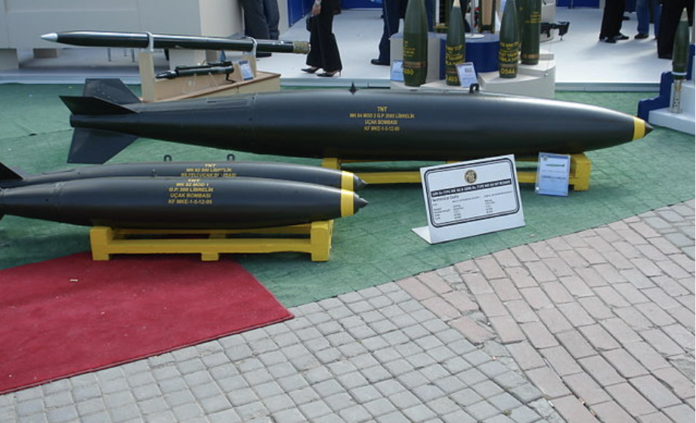The United States has confirmed its decision to provide Israel with a substantial influx of military hardware, despite public expressions of concern over potential escalations in Gaza. This strategic move involves the transfer of advanced weaponry, including a significant number of precision bombs and state-of-the-art fighter jets, reinforcing the military capabilities of one of America’s closest allies in the region.
The package includes an impressive array of armaments, notably more than 1,800 MK-84 bombs, and 500 MK-82 bombs, designed for their precision impact in combat scenarios. Additionally, the agreement facilitates the enhancement of Israel’s aerial warfare capabilities with the addition of 25 F-35 fighter jets. This acquisition not only bolsters Israel’s defense arsenal but also represents a continuity of the United States’ commitment, articulated through the annual military aid of $3.8 billion.
This development comes at a time of heightened tensions and ongoing conflict between Israel and Hamas in Gaza. The conflict, which ignited following a series of attacks by Hamas militants, has resulted in significant casualties and has drawn widespread international scrutiny. The United States’ decision to expedite military support to Israel amidst this backdrop has ignited debates within American political circles and among Arab American groups, who have voiced concerns over the implications of such steadfast support on the broader geopolitical landscape.
The approval of this military package occurs amid calls from some quarters for a reassessment of U.S. military aid to Israel. Critics argue for leveraging this support to foster a more comprehensive approach to peace in the region. However, the Biden administration’s action signals a continued prioritization of Israel’s security needs and a commitment to maintaining Israel’s qualitative military edge in a volatile region.
The implications of this arms sale extend beyond the immediate tactical advantages it provides to Israel. It underscores the enduring strategic alliance between the United States and Israel, a partnership characterized by deep military cooperation and shared security interests. This relationship has long been a cornerstone of U.S. policy in the Middle East, reflecting a complex interplay of defense, diplomacy, and regional stability.
Moreover, this decision has significant ramifications for the global defense market, highlighting the continued demand for advanced military technology and the United States’ role as a key supplier. The inclusion of F-35 jets in the package points to the growing emphasis on fifth-generation aircraft, capable of providing a technological edge in increasingly sophisticated theaters of conflict.
However, the sale also raises ethical and strategic questions about the impact of such military transfers in regions embroiled in conflict. The debate around arms sales, particularly in areas with active hostilities, touches on broader issues of international security, peacekeeping efforts, and the ethical responsibilities of arms suppliers.
The United States’ decision to enhance Israel’s military capabilities with advanced weaponry and aircraft amidst ongoing conflict with Hamas represents a multifaceted issue, intertwining considerations of national security, international diplomacy, and ethical responsibility. As this situation evolves, it will undoubtedly continue to attract attention and debate from various stakeholders, reflecting the complex and often contentious nature of international military support in a turbulent world.
Image is licensed under the GNU Free Documentation License and was created by KIZILSUNGUR.








